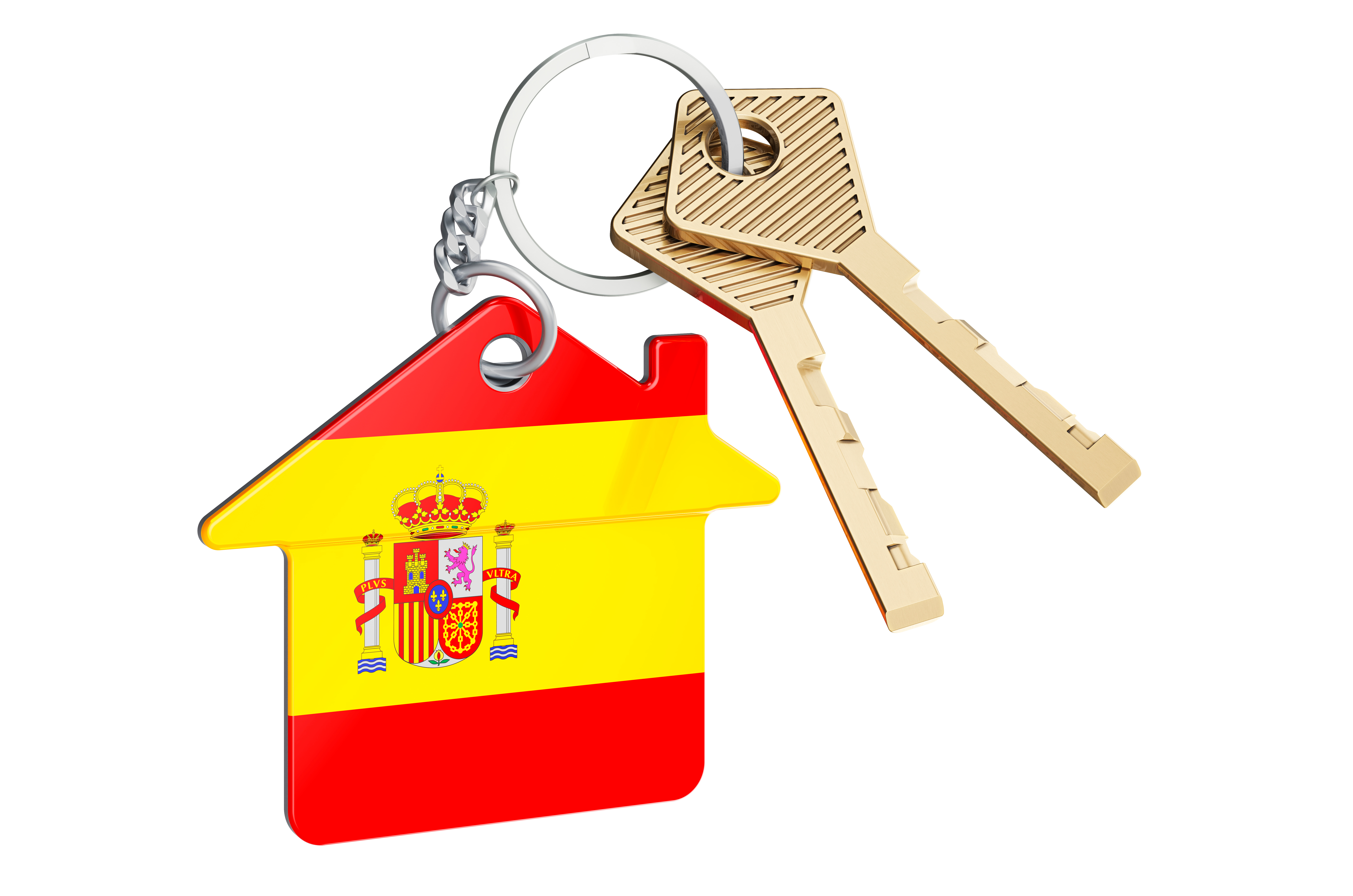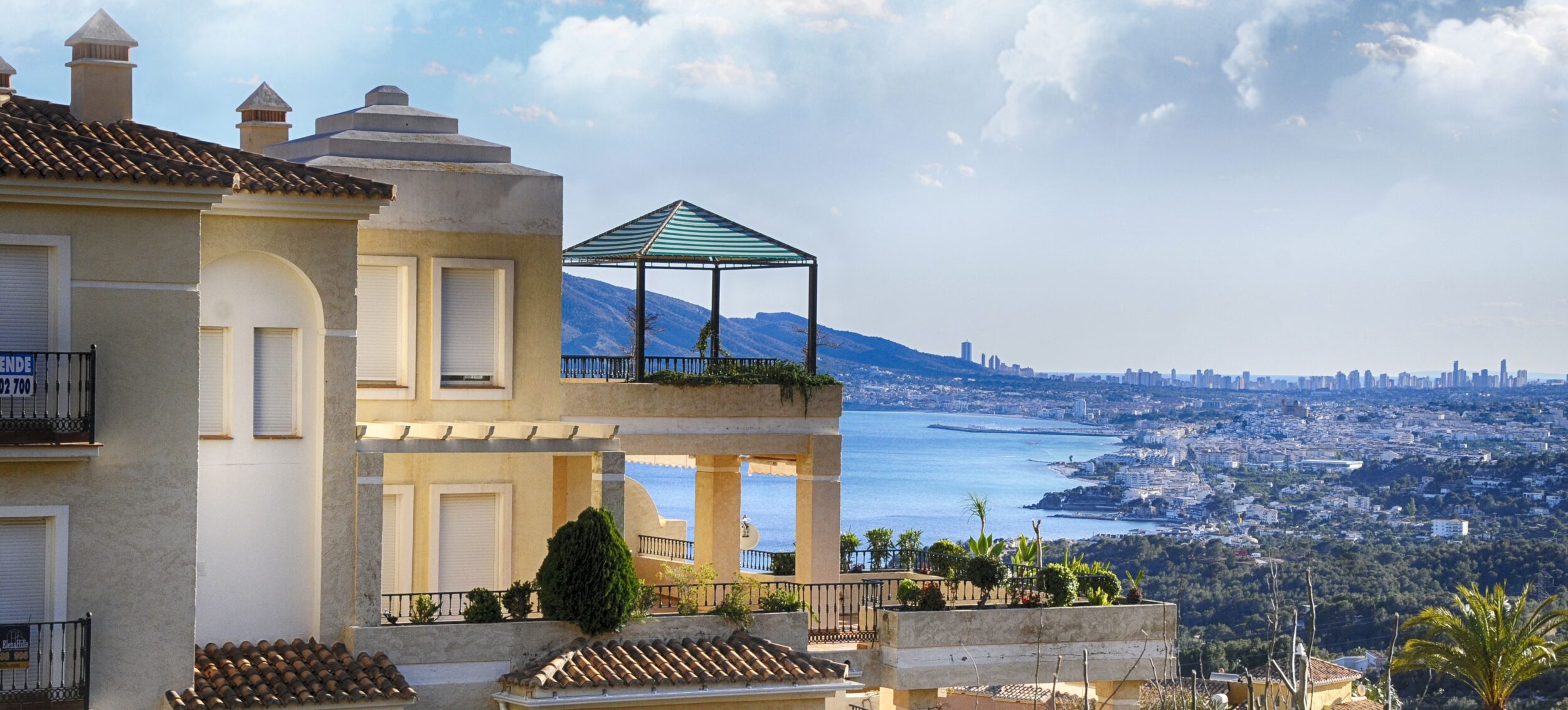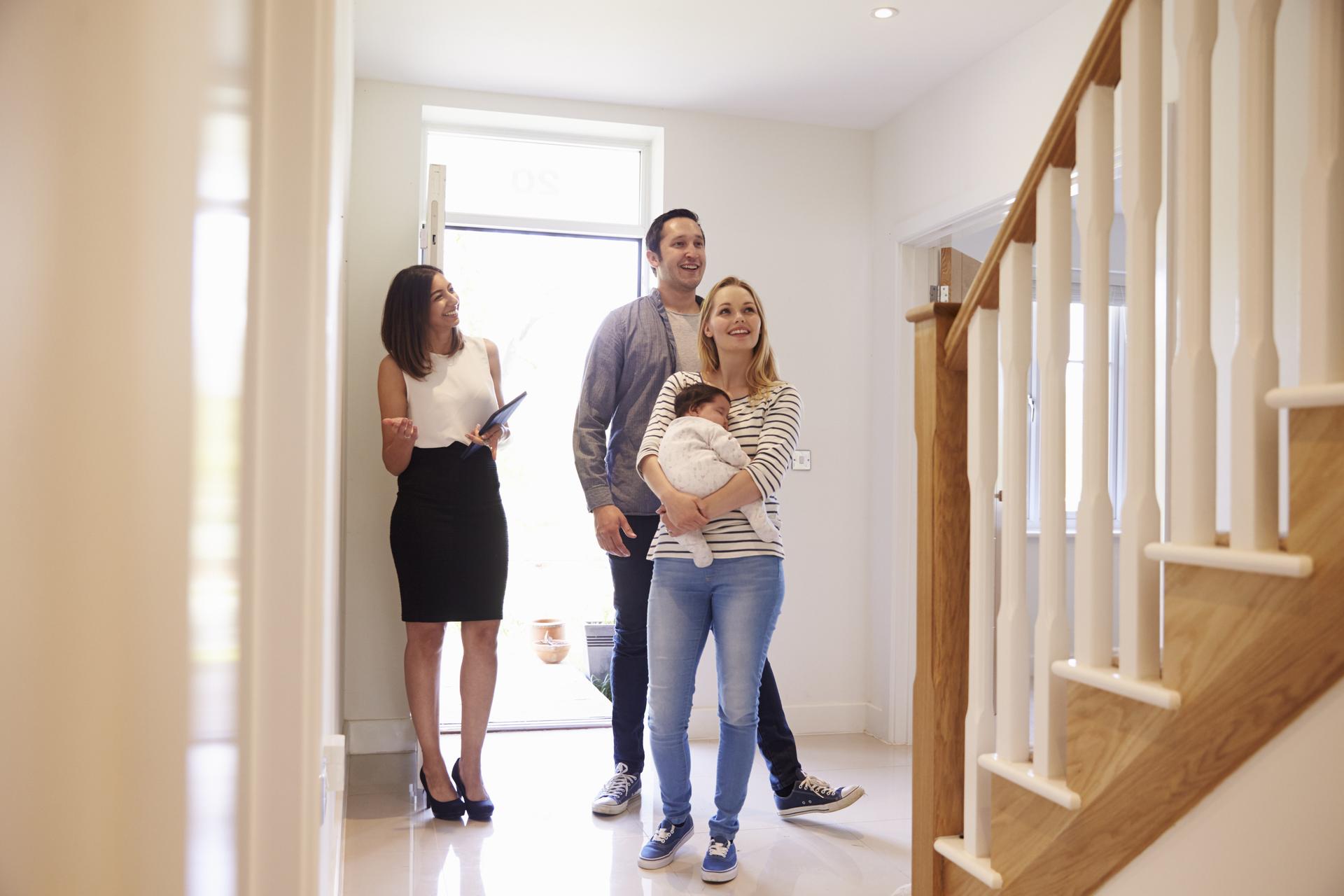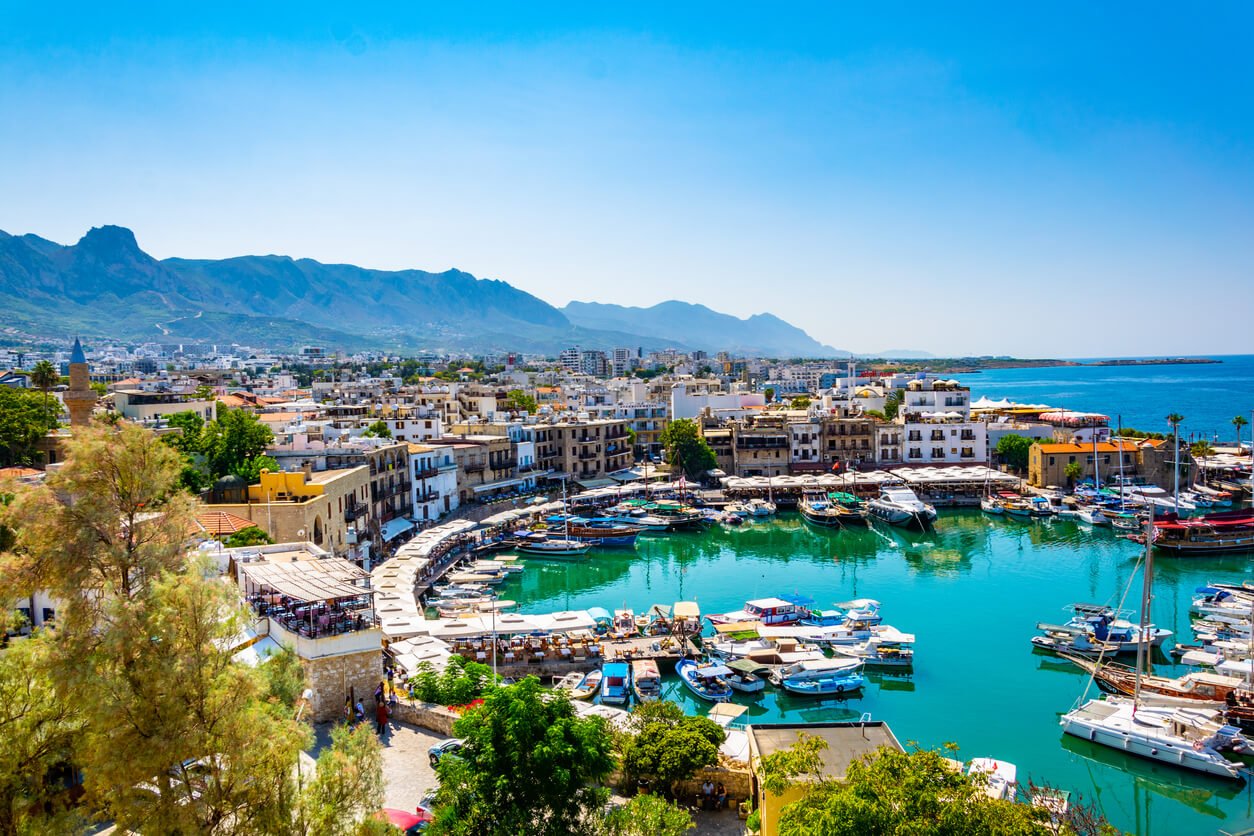
Are you dreaming of leaving the grey skies and rain of the UK behind and moving to Spain with your family? Imagine long sunny days, exploring the local countryside and beaches and living a relaxed way of life with more family time… this is the reality of living in Spain.
Once you’ve decided to set up your family in Spain you should do as much research as possible to ensure the move goes smoothly. From deciding where to live to what kind of property you want to buy and where the children will go to school, the more you know before the move the easier it will be.
We’ve put together this guide to advise you on how to settle in Spain.
Why is moving to Spain with a family a good idea ?
With its pleasant climate, slower pace of life and wide open spaces, Spain is the perfect place for children to grow up.
Cost of living
A lower cost of living, cheaper property than in the UK and the chance to immerse in a different culture make Spain a popular destination for families wishing to relocate.
The average cost of living (excluding rent) is 21% lower in Spain. Here are some examples to tempt you to a new life in Spain where you can save money on the cost of living:
- Basic utilities are 40.9% lower in Spain
- Groceries are 13.1% lower in Spain
- Restaurant prices are 24.1% lower in Spain
Enjoy the outdoor lifestyle
Spain is known for it’s outdoor life and if you love fresh air and sunshine you’ll love living in Spain. The dramatic mountain landscapes, national parks, and miles of sandy beaches will provide plenty to explore.
Eating outdoors in spring and summer is common for expats and the Spanish alike. Imagine enjoying dinner on a terrace overlooking the sea or the countryside with your family, not just for a holiday, but as a way of life!
Easy access to the UK and the rest of Europe
It’s easy to reach the UK from Spain, with 29 airports currently offering flights. The average time from Spain to the UK is 2.5 hours, with flights operating from the main airports of Alicante, Madrid, Barcelona and Seville, as well as other regional airports. This means that you can visit family and friends at home, or they can travel to you for a holiday in the sun!
Travelling to other parts of Europe is also much more practical than travelling from the UK. You can drive or take the train or coach to Portugal or France for a family holiday without having to cross the English Channel, or travel a little further and explore Italy or Germany.
Improving language skills
Many families also decide to settle in Spain to give their children the chance to become bi-lingual which can be an advantage in later life. Spanish is the third most spoken language in the world, with approximately 591 million Spanish speakers across the globe. There are career opportunities in the cities, and many international companies advertise for English and Spanish speakers.
Ease of working remotely
With remote working becoming the norm many parents decide to live in Spain and work from home. The introduction of the digital nomad visa in 2023 will allow foreigners to live in Spain and work for an international company, which is another reason to move to Spain.
Cheaper childcare
Childcare is much cheaper in Spain than in the UK – you can expect to pay between €100-€400 per week which includes meals, depending on where you live. This is good news for parents moving to Spain with a young family who plan to work.
School is not compulsory until age 6 but many working parents choose to send their children to a nursery so they learn to interact and make friends. This is also a great way for infants to learn to speak Spanish.
You’ve made the decision and the time has come to put your plan into action. Creating a list of things to do will help you organise your move and make sure it goes smoothly.
This timeline will help you with the practicalities of moving to Spain with a family.
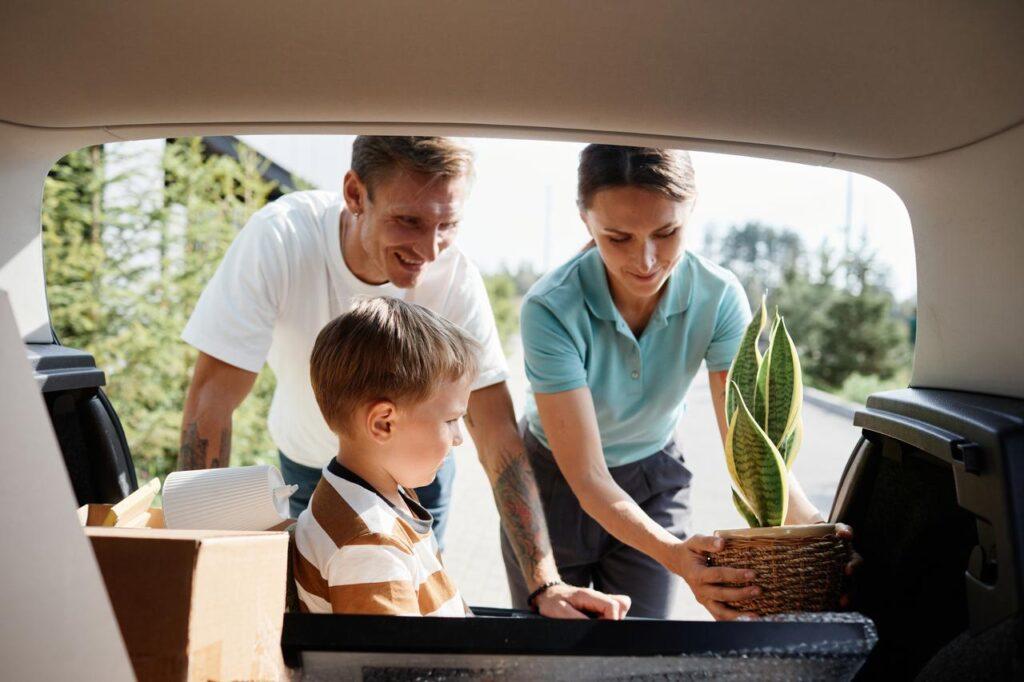
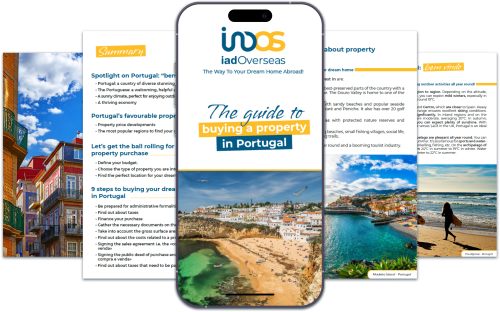
Scheduling your family move to Spain
6 months before the move
Put your UK property on the market
Selling a property can take time, and making sure it’s in the best condition will help achieve the best price. You should take care of any repairs and give your home a fresh coat of paint to ensure it looks its best for viewers.
Once it’s ready you should decide which agent you want to use and put it up for sale.
Finding your dream home
You’re likely to have some idea of where you want to live in Spain so now is the time to narrow things down. Perhaps you’ve had wonderful family holidays in southern Spain or spent time in the north – doing your research is essential as living in a foreign country is different from being on holiday.
Before buying a property in Spain it would be a good idea to rent a Spanish home for several months to make sure the area you’ve chosen has everything you need as a family. You’ll likely want:
- a good school
- transports facilities
- proximity to shops
- a doctor’s surgery nearby
It’s also important to consider the type of property you’re looking for. Do you need a big garden, a swimming pool, several bedrooms, an office…? Depending on your budget you may be looking for a villa near the sea, a traditional Spanish townhouse or a countryside home with land.
Consider your employment situation
If you plan to work in Spain you should start applying for jobs now as the interview process can take a while. Speaking fluent Spanish will certainly help you get a job in Spain, and many international companies want English speakers. Try Googling ‘Jobs for English Speaking Professionals in Spain’ and you’ll see a variety of employment opportunties for pharmaceutical, finance and IT companies, among others.
Another option is to ask your company for a move if they have an office in Spain.
You could also ask your employer if you can work remotely, which is considered the norm in many organisations these days.
The other option is to work as a digital nomad and either become self-employed in Spain (it is advisable to get a gestor to set this up) or take advantage of the digital nomad visa that has recently been approved.
Plan your budget
Before you buy a property you should be aware of how much you can afford. This will depend on how much you have saved or whether you intend to use equity from the sale of a property to buy. Or you might want to apply for a Spanish mortgage, which you should talk to your local bank in Spain about.
iad Overseas can advise you on how to secure the funds to buy a property in Spain.
There are so many ideal locations to buy property in Spain, and many families choose to make their home on the Spanish Costas of south and east Spain. From a modern apartment in Girona with a garden for €270,000 to a 4-bedroom townhouse in Pego on the Costa Blanca for €211,000 or a sprawling country home for €184,000 in Andalucia, there’s a property to suit every budget.
It can be a little more expensive to buy property in the north than in the south of Spain, but if you do your research you can still find a suitable family property. For example, a 4-bedroom home just outside Burgos can be found for €312,000 and a spacious 5-bedroom property in Galicia for €320,000, both of which are much cheaper than the average price of a family home in the UK which is currently £296,000 (€336,000).
You should also plan your monthly budget for living expenses, so you’re in control of the finances. Work out how much you spend each month at the moment compared to your income and compare this to how much you expect to earn and spend in Spain. This cost of living website is a great way to compare prices by region.

Plan your family activities in Spain
Moving your family to Spain needn’t all be about paperwork. The planning should be fun too. Talk to your children about the clubs they’d like to join and what they’d like to do when they start their new life. If you’re an active family and love adventure you’ll enjoy the many mountains and coastal walks the country has to offer. There’s also the chance to try out water sports such as surfing, paddleboarding and kayaking or just spend days at the beach.
Most towns and villages have a local sports centre, often with an outdoor swimming pool that’s open in the summer, so they’ll be plenty to keep everyone busy. You’ll also find music, dance and theatre classes, as well as computer clubs and language classes. The best way to find out about these is to ask at the local town hall (ayuntamiento).
3 months before the move
The date is approaching – keep up to date with your checklist!
Check your rental contract
If you rent a property check the amount of notice you have to give. This is usually one month, but may be longer. You may wish to talk to your landlord about vacating the property so they can advertise it for new tenants.
Inform people of your move
To tie things up in the UK you’ll need to tell the relevant companies and people that you are moving. These include:
- schools and clubs
- utility companies
- banks, pension and other financial companies you have accounts with
- insurance companies
- the DVLA (Driver and Vehicle Licensing Agency) if you’re selling your car
- the local authority in charge of Council Tax
- Internet and mobile phone companies
Of course family and friends will also need your new address!
Organise your paperwork
You should ensure your passport, birth certificate, medical records and copies of qualifications are up to date as you will need these once you arrive in Spain.
Research schools
If your children are aged between 6 and 16 they must attend school in Spain. Although voluntary, many children start preschool between 3-6 years old, often after attending a local nursery. This helps make the transition to school easier and in many smaller towns and villages children will go to nursery with their friends and be with them until they leave secondary school, forming a lifetime bond.
The Spanish education system is split into the following stages:
-Early childhood education
-Primary education
-Compulsory secondary education [ESO]
-Upper secondary education [Bachillerato]
-Vocational Training [FP]
-Adult education
-University education
State education in Spain is free and you will need to contact the school of your choice to register your child. Attending a Spanish school is a sure way for a child to learn to speak Spanish, and if they start at a young age they will almost certainly become bi-lingual.
Alternatively, you can choose to send your child to an international school, which teaches the English curriculum. They will learn Spanish here but will study in English. International schools are fee-paying, although are cheaper than private schools in the UK.
There are lots of English-speaking (US & UK) international schools in Spain. These include:
- British School of Barcelona;
- International College Spain in Madrid;
- The British College in Malaga;
- British School of Alzira in Valencia;
- The Lady Elizabeth School in Alicante
1 month before the move
You’re on the final stretch of your move to Spain, don´t forget the final details.
Book removals
A removal company will charge you anywhere between £3,000-£6,000 for an average house contents move, depending on how much you want to transport. It’s advisable to only bring what is necessary, as you can buy white goods and furniture once you are here.
When you arrive
There are some things that you need to do immediately on arrival in Spain:
Residency
This is essential if you plan to stay in Spain for more than 90 in 180 days. As a result of Brexit all non-EU country members must apply for a TIE card (Tarjeta de Identidad de Extranjero). This is a foreigners’ identity card issued by the local foreigners’ office. Note that appointments can be difficult to get and the whole process can take up to 2 months, so you should enlist the help of a gestor.
If you have family members joining you to live in Spain and you are a non-EU citizen (i.e. from the UK) you can apply for a family reunification visa.
Open a bank account
You should open a resident’s bank account as soon as possible. Many banks will do this while you are waiting for your TIE card to be issued if you show them your passport and evidence you have applied to become a resident.
Utilities
Get the electricity, gas and water changed into your name and choose an Internet and mobile telephone provider. You will need a bank account to pay these bills.
Healthcare
If you are working for a company in Spain, or as self-employed (autónomo) you and your children will be entitled to state healthcare. If you are not working you can either pay directly into the public health insurance system (Convenio Especial) or join a private healthcare scheme.
Whichever you choose, healthcare should be a priority as if there is a medical emergency you may find a doctor or hospital will not see you until you can prove you are entitled to treatment. The UK Government website gives more information on Healthcare for UK nationals living in Spain.
Transport
If you are a family moving to Spain you’re likely to need a car for school runs, shopping and those important trips to the beach. It will be simpler to buy a car in Spain than bring your UK car as Brexit means you now have to pay import duty on vehicles to Spain. It is also easier and safer to drive a left-hand drive car in Spain, rather than feeling like you are on the ‘wrong side of the road’. `
Plan your move to Spain with your family step-by-step and keep everyone involved with all the decisions, from where you want to live to how you’ll spend your leisure time together. This will help the children to settle and integrate with their new life.
We hope this guide helps you with how to move to Spain from the UK with kids. Our consultants are on hand to answer any questions you may have and advise you on where to live and how to buy a property in Spain.
- You have to apply to become a resident to live in Spain long-term.
- Living in Spain will give you more family time.
- Property in Spain is cheaper than in the UK.
